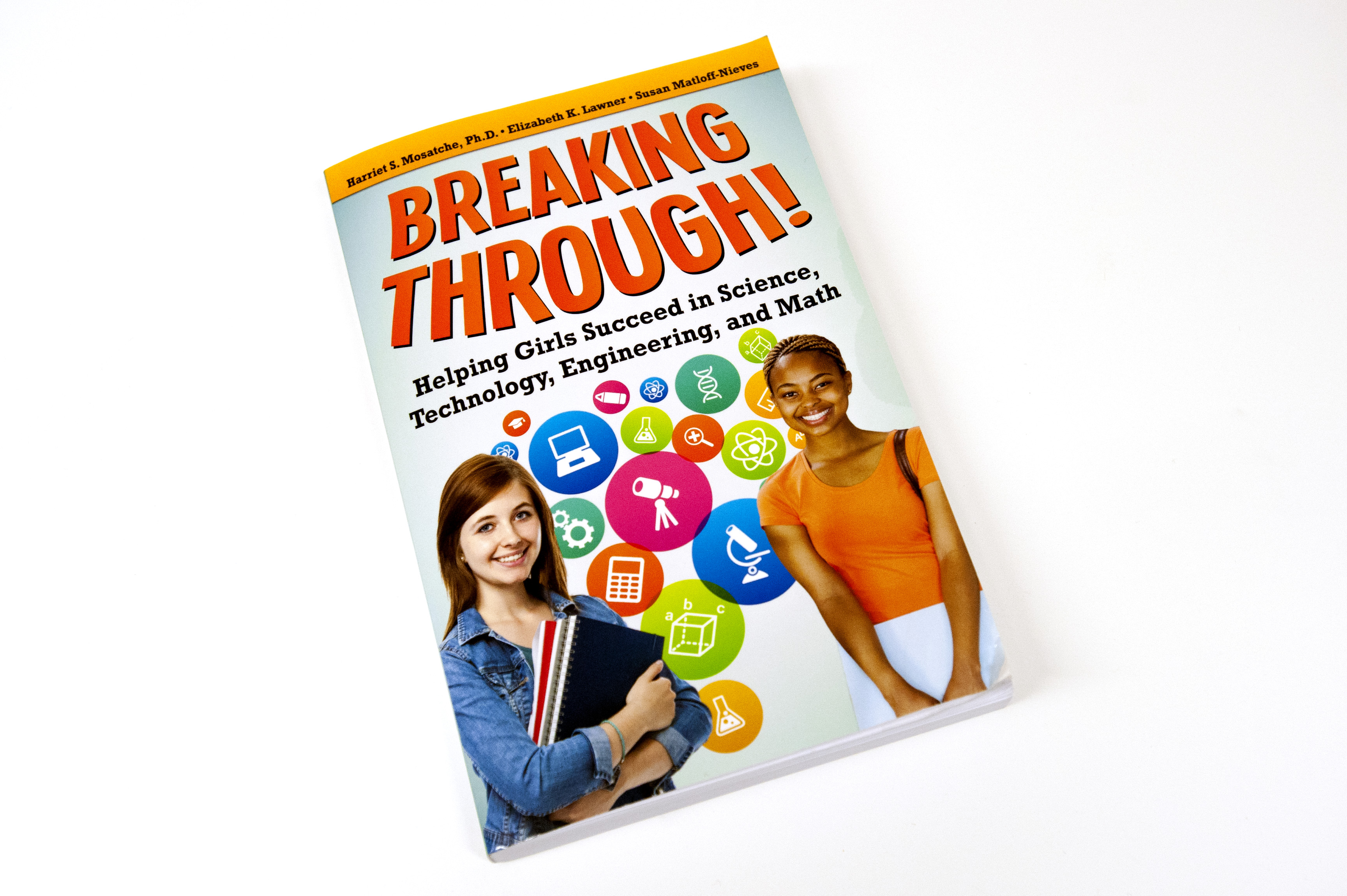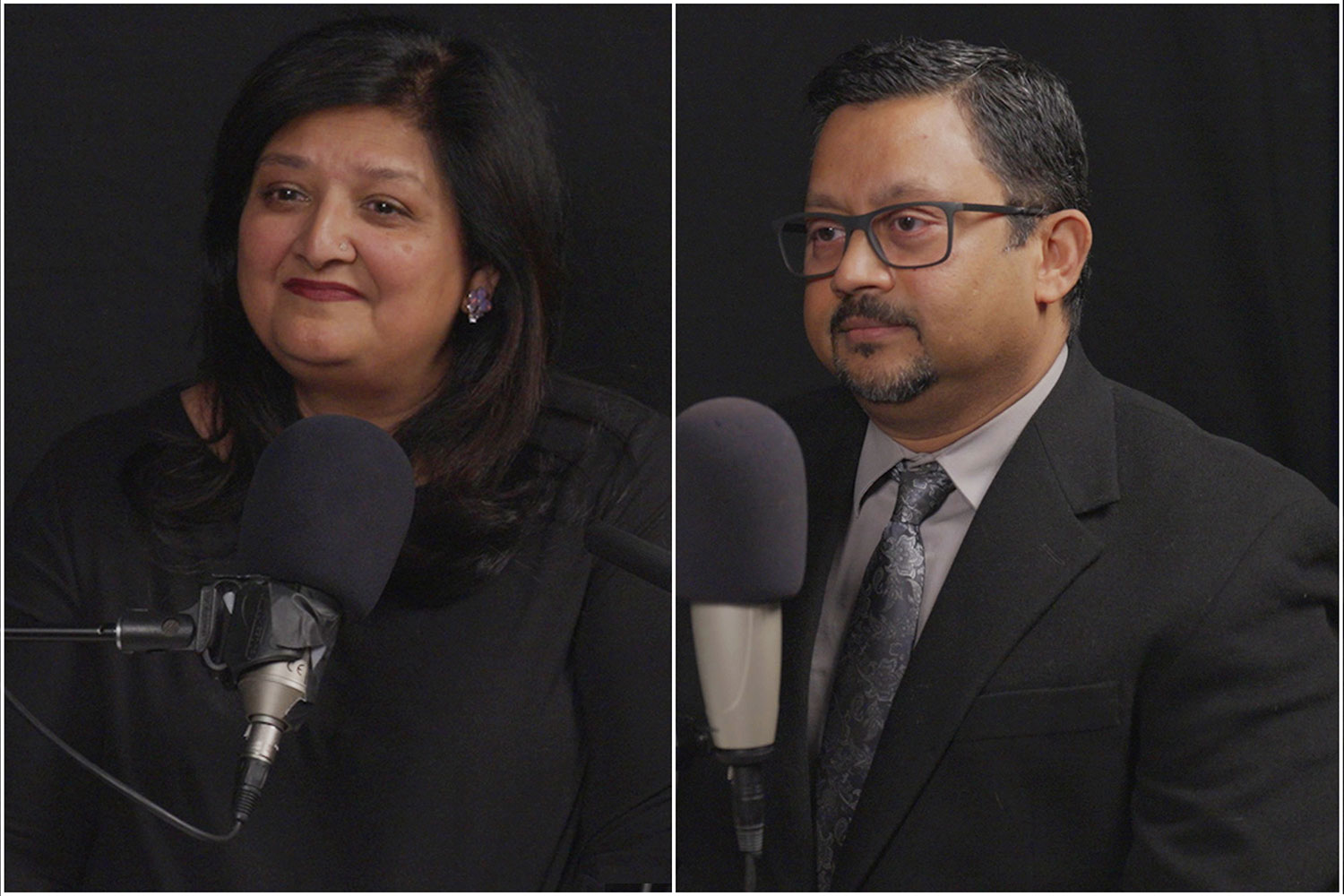Teach Girls Bravery, Not Perfection is the title of a TED Talk given in March by Reshma Saujani, the founder and CEO of Girls Who Code – a nonprofit organization working to close the gender gap in the fields of technology and engineering.
The message is that girls need to be encouraged to be adventurous and take chances – that they shouldn’t be afraid of not being perfect. Psychology Ph.D. candidate Elizabeth Lawner didn’t give the talk, but she could have written it.
Lawner and co-authors Harriet S. Mosatche and Susan Matloff-Nieves have written the recently published book: Breaking Through! Helping Girls Succeed in Science, Technology, Engineering, and Math. And, while the book is not autobiographical, it reflects many of the challenges and experiences Lawner encountered herself as a girl growing up with high academic aspirations – some of them in the fields included in the book’s title and commonly referred to as STEM.
“My parents were always supportive of my varying career choices,” Lawner says, “even when I kept changing my mind. When I was about nine, I wanted to be a molecular biologist. I wasn’t quite sure what that was, but it sounded like fun. I also thought about being an architect, a journalist, a writer and illustrator of children’s books, and a psychologist, like my mom. My parents just told me I needed to choose my high school courses wisely, and find a college where I would fit in.”
And even though Lawner was one of the lucky ones, with parents who encouraged her to explore all sorts of career options,when she took an interdisciplinary course in computer science during her freshman year at Duke University, something that all too typically happens to young women also happened to her.
“The first semester was devoted to the logic behind computer coding. It was the usual lecture class, with periodic quizzes and exams. I did really well. But in the second semester, we had to actually write Java – a programming language – and although I continued to do well on homework and class assignments, a lot of the time the code I wrote just didn’t seem to work.”
When she asked for help from TAs, they invariably found and corrected her errors, seemingly with ease. Lawner says she just assumed that the problems she was encountering were all her ‘fault,’ and she was happy that she hadn’t planned on getting a degree in computer science.
“I thought I just didn’t have the talent for writing code,” she says, “but then I eventually learned that virtually everyone has problems at one time or another – that the slightest deviation can make it seem that the code is all wrong, when sometimes all that is necessary is a minor modification. I also learned that even the boys in my class had occasional problems making their code work, but they didn’t take their failures personally, as I had done. They just tried again!”
As an undergraduate psychology major, Lawner just happened to be taking a course on the psychology of gender at about the same time she was feeling frustrated by her computer class. The psych class was transforming.
“I had always felt math was a strength of mine, and I began to wonder why people like me don’t end up in science. That’s what started me on this quest to find out why there aren’t more women in STEM … whether it’s computer science or engineering or any of the other related fields.”
Tips for helping girls succeed
In Breaking Through! Lawner and her co-authors concentrate on telling parents how they can help their daughters succeed in the STEM fields. Some of their advice is intuitive, such as providing girls with gender-neutral toys, encouraging involvement in science fairs and nature programs, and recognizing that opportunities to experience science, technology, engineering, and math are everywhere.
They say that when girls are asked what they think will happen in a given situation, they are creating a hypothesis; when asked how they’d make something better, they become product engineers, and figuring out how much time commercials take up while watching television gives them non-threatening exercises in math.
But, says Lawner, there are other obstacles to girls entering STEM fields due to gender biases still found in schools and in the media. These are the areas where parental involvement is critical. This may mean getting involved with primary and secondary school curriculum development, working with teachers to assure that girls are given the same exposure to science and math classes as the boys, and stepping in to make sure their daughters learn to stand up – and speak up – for themselves.
Her undergraduate work on the psychology of gender influenced Lawner’s ultimate career choice to pursue a Ph.D. in social psychology. Her current research involves the study of how gender stereotypes affect responses to success or failure in the STEM fields.
And while she doesn’t write Java, she does use the exact same skills to write code/syntax for statistical analysis programs such as R and SPSS that she needs for her research. So that early coding class really did pay off.



